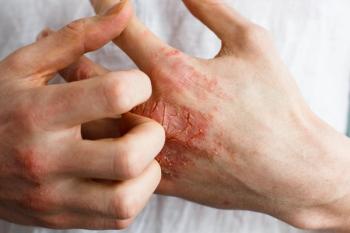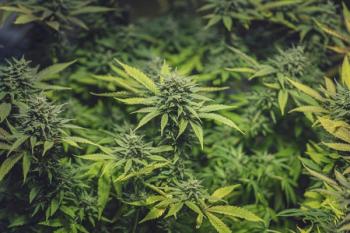
- Drug Topics January 2023
- Volume 167
- Issue 01
Holistic Treatment Techniques for Managing Atopic Dermatitis
Patients are finding relief in alternative therapies for this chronic skin disease.
Atopic dermatitis (AD), often called atopic eczema, is the most common inflammatory skin condition, affecting individuals of all ages, from newborns to adults 65 years or older. Approximately 230 million individuals worldwide live with the disease, which is characterized by itchy, dry, and cracked skin.1 AD management usually depends on long-term adherence to prescription medicines and avoidance of environmental triggering factors. Because medications only address the physical ailment and often come with adverse effects, many patients with AD prefer seeking treatment options beyond standard medications. Holistic medicine provides one of these approaches to manage the disease.
What Is Holistic Treatment?
Holistic treatment is an approach that focuses on the patient as a whole—body, mind, and spirit—rather than simply managing a particular disease. It is based on the philosophy that optimal health can be achieved by attaining a balance in life. Holistic practitioners believe that our body parts are interdependent; if one part is hurt, the other parts will also be affected, negatively affecting overall health. These practitioners use both Western medicine and alternative therapies, focusing on alleviating the cause of the condition instead of simply managing the symptoms. Some commonly used holistic treatment options for AD are discussed in this article.
Holistic Treatment Options for Atopic Dermatitis
Natural oils: Virgin coconut oil provides an inexpensive and safe alternative option in the management of AD. It has been used for centuries to moisturize the skin. It consists of triglycerides, polyphenols, and fatty acids as its main components and has anti-inflammatory, antioxidant, and antibacterial properties promoting wound healing and moisturization of skin affected by AD.2 According to results of a study published in the Journal of Traditional and Complementary Medicine, the anti-inflammatory properties of virgin coconut oil help suppress inflammatory markers and enhance the skin barrier function, thereby protecting the skin.3
Sunflower seed oil is also known for its anti-inflammatory properties among patients with AD. It contains linoleic acid that activates PPARα, thus decreasing inflammation and improving skin barrier function.4
Acupuncture: Acupuncture is a traditional Chinese medicine practice that involves the penetration of hair-fine needles into the skin to promote physiological healing. It has proved successful in managing several dermatological conditions including AD. The practice is gaining worldwide attention, with approximately 3 million adults in the United States using acupuncture in 2007.5 According to findings from a systematic review of 8 randomized control trials, acupuncture might be more effective than conventional medicine in relieving global symptoms of AD.6
Phytotherapy: Phytotherapy uses herbs, plants, and plant extracts to manage disease. Herbal medicines, in topical as well as oral form, are gaining traction in the management of AD. They generally have anti-inflammatory and immunomodulatory effects. A review conducted in 2020 showed promising results of herbal medicine as both monotherapy and adjunctive therapy in managing AD. Regarding efficacy and symptom relief, herbal medicine was found to be more effective than conventional medicine.7
Aromatherapy: Aromatherapy, which uses essential oils distilled from plants, is used to manage various conditions such as stress, anxiety, and dermatological disorders. It is commonly used in combination with other nontraditional therapies. The essential oils in this therapy are administered to the body in various ways, including direct massage, inhalation, or distillation in baths.8
Hypnotherapy: Hypnosis has increasingly been used in medicine to manage pain and anxiety. Because stress plays a vital role in aggravating symptoms and triggering flare-ups of AD, hypnotherapy can help improve some of the disease symptoms. Findings from a study published in the International Journal of Clinical and Experimental Hypnosis showed hypnosis to be an effective treatment option for AD. The data further demonstrated that hypnosis could be used in patients as an alternative treatment option to systemic therapies.9
Climatotherapy: Climatotherapy has been indicated for patients with AD for many years. This form of therapy involves a combination of swimming and sunbathing in the sea for a few weeks. The Dead Sea basin is known as a natural treatment center for patients with dermatological and rheumatic conditions. Results from a scientific study highlighted a temporal shift in the skin of patients with AD after exposure to Dead Sea climatotherapy. These findings further elucidate that climate can serve as a potential therapy for patients with AD by influencing the development and maintenance of a patient’s personal microbiomes.10
Tuina: Tuina is a traditional Chinese medicine therapy involving manual manipulation of soft body tissues to enhance health and well-being. According to data from a systematic review conducted in 2019, tuina massage therapy is an effective treatment option for improving symptoms and reducing relapse rates among individuals 13 years or younger. It has also been reported that tuina, either alone or in combination with other treatment options, may successfully improve common signs and symptoms of AD, including skin lesions, itchiness, edema, and papules.11
Diet and supplements: It is a common myth among patients with AD that avoiding certain foods may prevent allergic reactions and flare-ups of the disease. However, making dietary changes can help reduce inflammation, boost the immune system, and improve some of the symptoms associated with AD. Some common vitamins and supplements used by patients with AD to manage their symptoms include vitamin A, vitamin C, vitamin D, antioxidants, zinc, fish oil, prebiotics and probiotics, selenium, cannabidiol, and melatonin.12 Data from a study published in the American Journal of Clinical Dermatology revealed the role of vitamin D supplements in reducing the severity of AD.13
Relaxation techniques: Patients with AD are prone to anxiety and stress, which may serve as triggering factors and exacerbate the situation. It is crucial to address these factors and promote stress management. Some common relaxation techniques used among patients with AD to promote physical and mental well-being include meditation, yoga, breathing exercises, tai chi, and Reiki.8
Holistic medicine aims to address the overall well-being of patients, which requires greater teamwork and integration in the care chain. Although Western medicine proves beneficial in managing symptoms, a holistic approach may help improve patients’ overall health. However, evaluating all benefits and risks associated with therapy before prescribing any holistic treatment is imperative.
A version of this article originally appeared in Drug Topics® sister publication, Dermatology Times®.
References
- Stanway A, Jarrett P. Atopic dermatitis. DermNet. Accessed November 11, 2022.
https://dermnetnz.org/topics/atopic-dermatitis - Chew YL. The beneficial properties of virgin coconut oil in management of atopic dermatitis. Pharmacogn Rev. 2019;13(25):24. doi:10.4103/phrev.phrev_29_18
- Varma SR, Sivaprakasam TO, Arumugam I, et al. In vitro anti-inflammatory and skin protective properties of virgin coconut oil. J Tradit Complement Med. 2018;9(1):5-14. doi:10.1016/j.jtcme.2017.06.012
- Goddard AL, Lio PA. Alternative, complementary, and forgotten remedies for atopic dermatitis. Evid Based Complement Alternat Med. 2015;2015:676897. doi:10.1155/2015/676897
- van den Berg-Wolf M, Burgoon T. Acupuncture and cutaneous medicine: is it effective? Med Acupunct. 2017;29(5):269-275. doi:10.1089/acu.2017.1227
- Jiao R, Yang Z, Wang Y, Zhou J, Zeng Y, Liu Z. The effectiveness and safety of acupuncture for patients with atopic eczema: a systematic review and meta-analysis. Acupunct Med. 2020;38(1):3-14. doi:10.1177/0964528419871058
- Kwon CY, Lee B, Kim S, Lee J, Park M, Kim N. Effectiveness and safety of herbal medicine for atopic dermatitis: an overview of systematic reviews. Evid Based Complement Alternat Med. 2020;2020:4140692. doi:10.1155/2020/4140692
- Jadotte YT, Santer M, Vakirlis E, et al. Complementary and alternative medicine treatments for atopic eczema. Cochrane Database Syst Rev. 2017;2017(9):CD010938. doi:10.1002/14651858.CD010938.pub2
- Delaitre L, Denis J, Maillard H. Hypnosis in treatment of atopic dermatitis: a clinical study. Int J Clin Exp Hypn. 2020;68(4):412-418. doi:10.1080/00207144.2020.1788391
- Brandwein M, Fuks G, Israel A, et al. Skin microbiome compositional changes in atopic dermatitis accompany Dead Sea climatotherapy. Photochem Photobiol. 2019;95(6):1446-1453. Published correction appears in Photochem Photobiol. 2020;96(2):450.doi:10.1111/php.13218
- Lu C, Jin X, Wu D, Zhu S, Lai L, Liu J. Tuina for treatment of atopic eczema in children under 14 years: a systematic review of randomized controlled trials. J Trad Chin Med Sci. 2019;6(1):13-25. doi:10.1016/j.jtcms.2018.12.006
- Alternative treatments for eczema. National Eczema Association. October 16, 2022. Accessed November 10, 2022.
https://nationaleczema.org/eczema/treatment/complementary-and-alternative / - Ng JC, Yew YW. Effect of vitamin D serum levels and supplementation on atopic dermatitis: a systematic review and meta-analysis. Am J Clin Dermatol. 2022;23(3):267-275. doi:10.1007/s40257-022-00677-0
Articles in this issue
about 3 years ago
Recommended Immunization Schedules for 2023about 3 years ago
Know Your Winter Respiratory Illnessabout 3 years ago
For Pharmacists, Building Resilience and Well-Being Is Criticalabout 3 years ago
Is It Easy Being Green?about 3 years ago
FDA Approves Terlipressin for the Management of HRS-1about 3 years ago
To Improve Retail Pharmacy, Look Beyond Figures and Dig Into FactsNewsletter
Pharmacy practice is always changing. Stay ahead of the curve with the Drug Topics newsletter and get the latest drug information, industry trends, and patient care tips.























